By: Kathryn Campbell
Bahamas Information Services
#TheBahamas, June 9, 2022 – The government is forging ahead to achieve energy sector reform in the country with 30 per cent conversion to renewable energy, or ‘solar power,’ by 2030.
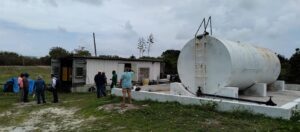
Long Cay
The initiative would reduce reliance on traditional fossil fuel energy sources, which are very costly, contribute to high cost of living in The Bahamas and elsewhere, and add to adverse climate change globally.
To begin the process of conversion to solar power, Technical Assessments for the installation of Solar Photovoltaic Systems are underway in North Andros, Inagua, Mayaguana, Acklins, Crooked Island, Long Cay, Marsh Harbour and Abaco to assist the country in its transformation to clean renewables.
Prime Minister and Minister of Finance the Hon. Philip Davis in his recent Budget Communication highlighted the importance of the solar power initiative, noting that “it has long been a major complaint of businesses that a key challenge to the Ease of Doing Business over the years has been the very high costs of electricity, the unreliable supply of electricity, and the limited inclusion of solar technologies in our energy mix, even despite our abundant potential for solar power and the tools at our disposal to solve this problem.”
The prime minister in his Fiscal Year 2022/2023 Budget Communication, May 25, 2022 recalled the execution of an $80 million loan on August 5th, 2020 with the Inter-American Development Bank (IDB) for the “Reconstruction with Resilience in the Energy Sector in The Bahamas.”
The objective of the loan was to support the government with the rehabilitation of critical energy infrastructure and restoration of electricity service in islands heavily-affected by Hurricane Dorian, while facilitating the integration of Renewable Energy (RE).
The specific objectives were to: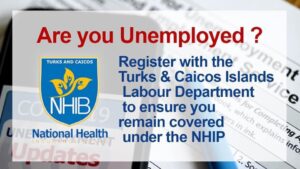
(i) Support the rehabilitation of the electricity transmission and distribution system and installation of new and resilient RE capacity in Abaco and East Grand Bahama;
(ii) Promote the adoption of solar PV technologies in the Family Islands; and
(iii) Contribute to the improvement of the regulatory framework for RE technologies and the mechanisms for its deployment.
The Prime Minister advised that there has been “very little” progress since 2020, and that “since coming into office my administration has moved quickly to rectify this and to capitalize on this missed opportunity by strengthening the Project Execution Unit (PEU) in the Ministry of Finance to ensure timely delivery, value for money and to co-ordinate activities with other relevant stakeholders on this project. The result has been substantial progress on this project in the past few months.”
The immediate focus is the introduction and implementation of new models to develop resilient solar PV installations in The Bahamas.
“To accomplish this an assessment of energy systems in New Providence and the Family Islands will need to be done. This work will start in the southeastern islands, namely Inagua, Mayaguana, Acklins, Crooked Island and Long Cay.
“This year we will deploy in those islands, public decentralized solar PV plants; rooftop systems and innovative microgrids with storage capacity; and grid modernization technologies to improve the reliability and resiliency of the power network on these islands.
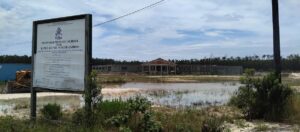
North Andros
“Additionally, pilot installations of Solar Photovoltaic Systems on public buildings in Andros will also be carried out. Thereafter, the installations of Solar Photovoltaic Systems with be extended to the Central and Northern Bahamas.
“A key aspect of this project is to ensure Bahamian participation and ownership in this industry. What this means, is that going forward, we are committed that all future maintenance, installation, site works or the like, will be conducted by Bahamians.”
In the first cohort of this initiative, the Government has committed to have a minimum of 25 Bahamians, trained and certified to operate in this sector.
“We will also commit and ensure that government funding agencies make resources available to those individuals who have successfully completed this course, in order to support them in opening their own business in this sector. We will also encourage the inclusion of green technology in all new major construction, and eventually provide the opportunity to offer similar services around the region,” he said.
At a Local Government Practitioners Conference, May 25, at SuperClubs Breezes, Prime Minister Davis informed that he has “direct superintendence of this energy and economic development project,” and assessments are being led by members of the Project Execution Unit/Reconstruction with Resilience in the Energy Sector in The Bahamas Program, within the Ministry of Finance.
He said, “This transformative initiative is contained in my Government’s Economic Plan and Blueprint to provide renewable and solar energy for the country thereby reducing the country’s reliance on fossil fuel by 30 percent by 2030.”
He admonished Local Government practitioners that they are on the frontline in leading this transformation, and that he and the minister are counting on their “strong leadership in making this a success.”
On March 30, 2022 the government, led by Minister of Economic Affairs, Senator the Hon. Michael Halkitis, signed a $9 million contract funded by the European Union in partnership with the IDB to assist in the expanded use of clean, renewable energy, and promote post-hurricane reconstruction ‘with resilience’ in The Bahamas.
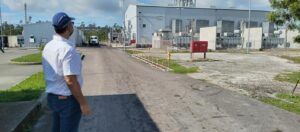
Marsh Harbour, Abaco
During the signing held at the Ministry of Finance, Senator Halkitis said, “It is worth noting that a high priority of this administration is to reduce the use of fossil fuel by creating an environment for renewable energy, where interested persons or entrepreneurs can participate in, among other things, the application of solar energy for the advancement of industry that is propelled by clean energy. Today, the EU and IDB are providing financial assistance of approximately $9 million, in grant funds, to assist in transforming a plan for renewable energy into reality.”
He said that the support comes at a very timely moment given the current geopolitical circumstances impacting fuel prices and the rise in the costs of goods and services. He also alluded to the current energy investment initiative that is at present being funded by the IDB at a cost of $80 million.
“This project, in summary, entails the installation of renewable energy capacity in East End Grand Bahama and Abaco. The Family islands are also expected to receive support from the energy investment project as solar systems will be constructed on these islands to reduce reliance on traditional energy.”
Photo Caption: Technical Assessments are taking place in Family Islands for the installation of Solar Photovoltaic Systems as part of the country’s energy sector reform for 30 percent reliance on renewable energy (solar power) by 2030.
(BIS Photos/Ulric Woodside).
Long Cay – Photos 1 and 2
North Andros – 3
Marsh Harbour, Abaco – 093103 and 092514
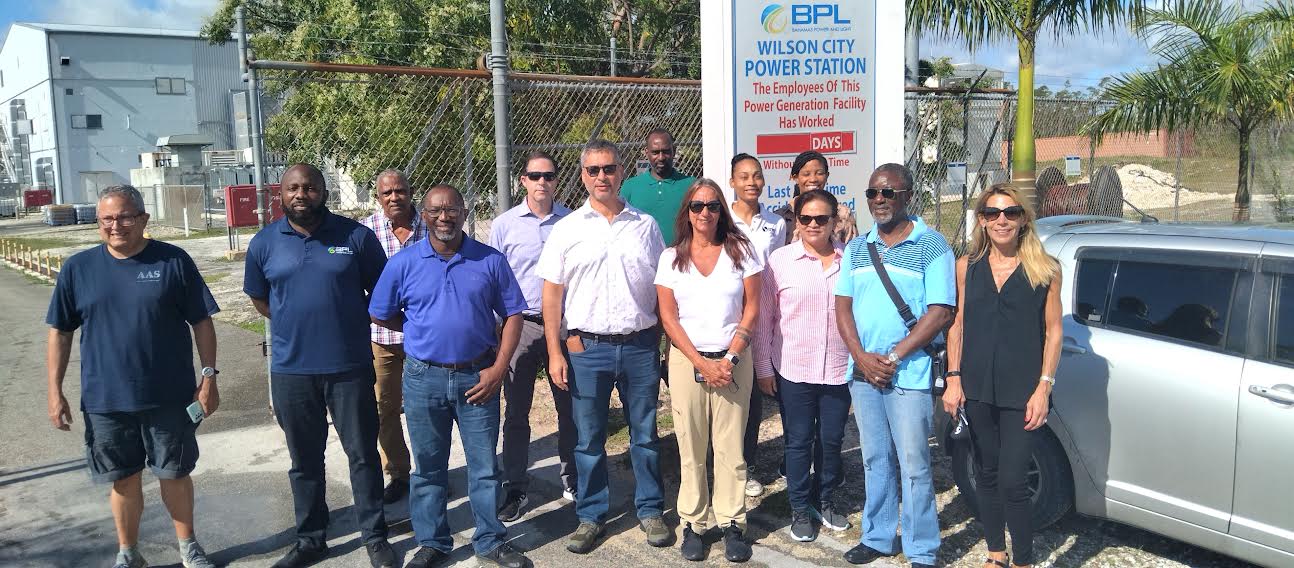

 News6 days ago
News6 days ago
 Caribbean News1 week ago
Caribbean News1 week ago
 News6 days ago
News6 days ago















